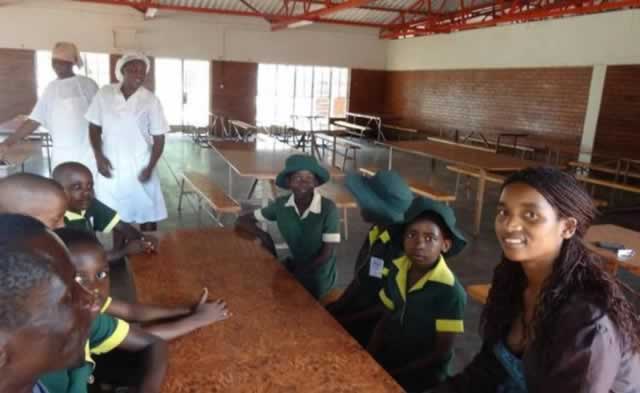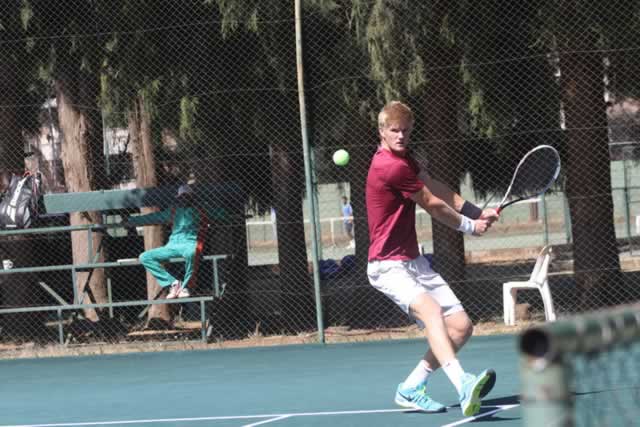How Internet can transform charities


Charities, like Musi Tust Zimbabwe, must capitalise on the opportunities offered by digital media to create the greatest possible social impact
The use of the Internet offers a variety of benefits to everyone who is willing to use it.
The enormous amount of information available and the many uses one can have through the internet have made it the most valuable tool in various settings of a person’s life.
The Internet has an enormous amount of publications added on it every day and it’s evolving as the most powerful source of information.
Also, use of the Internet has made jobs easier and oversimplified tasks that would take an enormous amount of time before.
Moreover, the Internet has become a great tool for avoiding the hassles of the bank, offering the chance to make the transactions quickly and safely.
It also offers a powerful source for shopping and the easiness of having your products delivered straight to your house, should you decide you do not want to go out.
Furthermore, the widespread use of the Internet has opened new areas of jobs in all countries and expanded the availabilities of working from home.
Last, the Internet is one of the most valuable tools in educations since it provides an enormous amount of information and is the greatest source of reference for educators and students. The electronic libraries are of utmost importance for university students looking for scientific information for their courses.
Another major benefit of the Internet is its ability to minimise distances and provide communication services efficiently and without any cost.
In general, the Internet is a multi-tool with applications on every aspect of someone’s life.
In a world in which local voices can have global reach, charities and NGOs have urgent and exciting new opportunities to give voice to their causes, to empower communities and citizens, and to be responsive to their needs and aspirations.
Digital media has the power to enable charities and communities to become more integrated and cohesive – but finding the skills, strategies and resources can present some huge challenges to small and large organisations, many of which are juggling complex bottom lines around service delivery, campaigning and income generation.
How can charities and communities be empowered to rise above the growing online noise and increase their reach and influence?
Weaving together media relations with community building and proactive conversations can deliver outstanding results at a low cost.
The changing face of journalism means that digital media has the potential to transform charities’ relationships with the media, bringing them closer to the story and creating a two-way conversation between journalists and their audiences.
While many charities use the Internet as a broadcast tool, those who are one step ahead use it to start conversations, to analyse and respond to data.
Digital media offers a huge opportunity for charities and communities to get to know their audiences, to learn about their likes, dislikes and habits, enabling them to create strategies and campaigns that stand out from the crowd and can be integrated successfully with offline public relations and marketing activities.
The most potentially transformational opportunity for communities, charities and campaigners is to join forces through digital media, to find common cause and create widespread influence and impact. The challenge is to rise above the increasing noise and be more sophisticated than the average.
The time to invest is now; the noise will only get louder as mobile devices and internet-connected TVs become more prolific and accessible.
In comes Slacktivism is usually considered a pejorative term that describes “feel-good” measures, in support of an issue or social cause, that have little physical or practical effect, other than to make the person doing it feel satisfied that they have contributed.
Slacktivism can be defined as the act of showing support for a cause but only truly being beneficial to the egos of people participating in this so-called activism. The acts tend to require minimal personal effort from the slacktivist. Slacktivist activities include signing Internet petitions, joining a community organisation without contributing to the organisation’s efforts, copying and pasting of social network statuses or messages or altering one’s personal data or avatar on social network services.
Research is beginning to explore the connection between the concept and modern activism/advocacy, as groups are increasingly using social media to facilitate civic engagement and collective action .
The underlying assumption being promoted by the term is that these low-cost efforts substitute for more substantive actions rather than supplementing them, although this assumption has not been borne out by research.
Many websites and news platforms have integrated social media sites such as Facebook and Twitter into their interface, allowing people to easily “like”, “share” or “tweet” about something interesting they saw on the Internet.
People can now express concern about social or political issues with nothing more than the click of a mouse, raising the question of what is actually being accomplished by these “likes” when very little thought or effort is required.
Charities must capitalise on the opportunities offered by digital media to create the greatest possible social impact.
The UK’s creative and digital sector can empower charities to do this by continuing to volunteer their resources, skills and creativity. At ZOL we see the biggest transformation through our work enabling communities and charity beneficiaries to take control of their lives and their stories through digital media.
We encourage people of all ages and backgrounds to share these skills with others, enabling them to have their own voice through creative use of digital media and storytelling. A short powerful video can circulate around the world in a few minutes, generating conversations, influencing and inspiring change.
If content is king, distribution is queen. ZOL On! And truly support someone. ZOL Proudly supporting Musi Trust Zimbabwe.









Comments